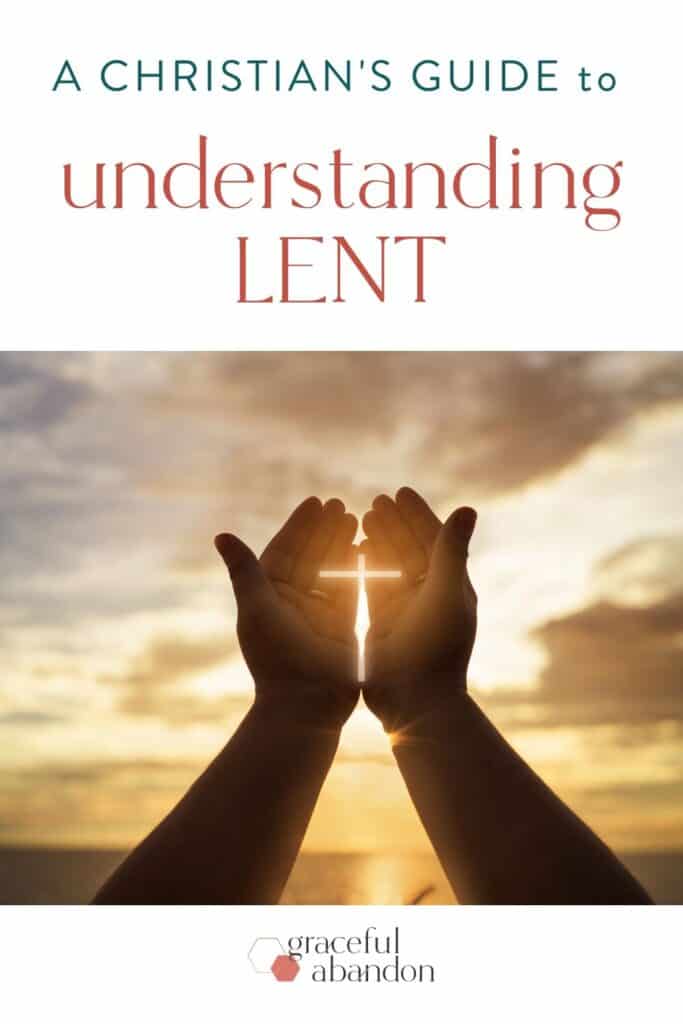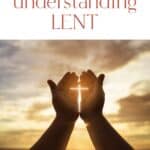A Christian’s Guide To Understanding Lent
We may earn money from the products/companies mentioned in this post. As an Amazon Associate I earn from qualifying purchases. For more information, read our Terms & Disclosures.
Many in the Catholic and Orthodox tradition celebrate Lent in the weeks leading up to Easter, but many Protestants don’t really comprehend this church tradition. What’s the difference? Here is a Christian’s Guide To Understanding Lent.
A lot of Christians don’t know what Lent is, other than some vague recollection that it happens before Easter. In fact, fewer than 25% of Americans celebrate it (source).
However, because it can be an incredibly meaningful time of reflection for faith focused families and a become a treasured family tradition in Christian homes, it’s worth learning more about.
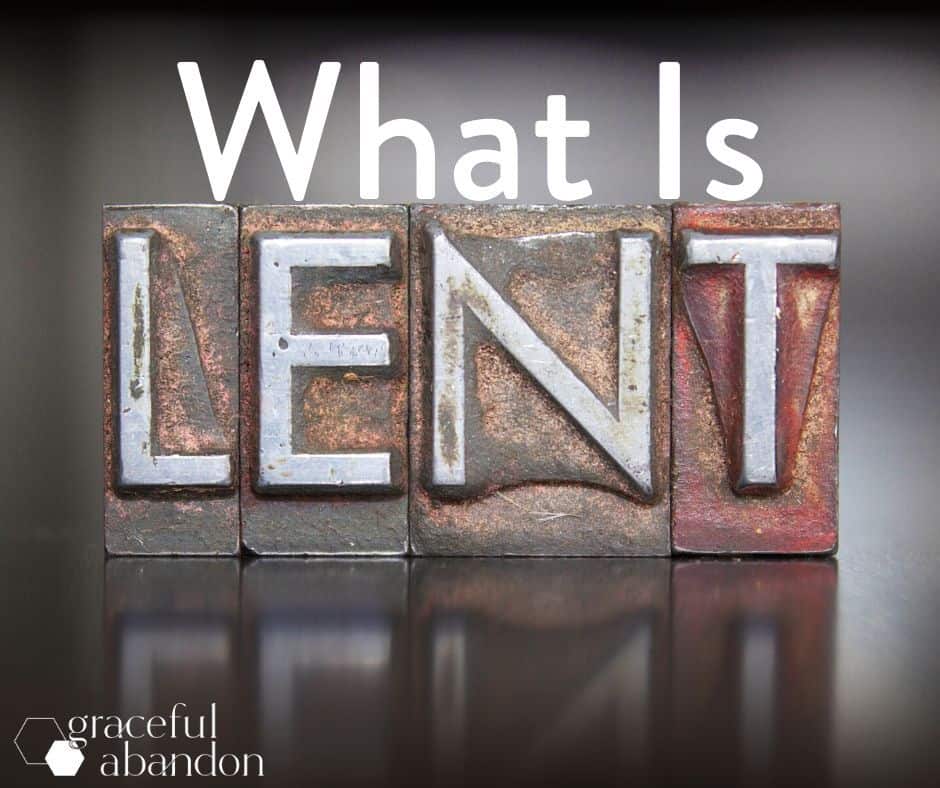
What Is Lent?
Lent is the pre-Easter season observed primarily by those in the Catholic Church as well as by some Protestant denominations.
Lent is a season of reflection and preparation before the celebrations of Easter.
BBC
It is a time of self-sacrifice, spiritual discipline, and preparation to fully rejoice in the miracle of the resurrection on Easter.
It is intended to be a time of reflection on Christ and His sacrifice, repentance from your sin that necessitated His coming to earth, and to be a season where you focus on prayer more intently.
Lent is celebrated for 40 days and starts on what is commonly referred to as Ash Wednesday (in the Catholic Church and western world) or Clean Monday (in the Orthodox Church or eastern nations) and ends on Easter. Technically it is a 46 day period, as Sundays are exempt from fasting.
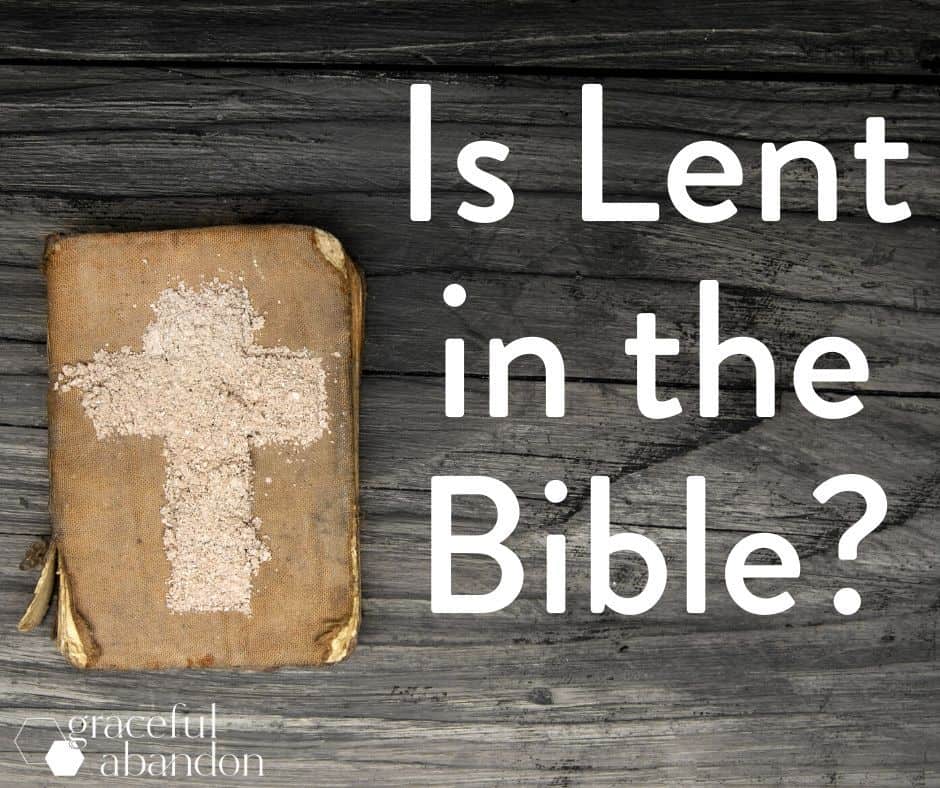
Is Lent In The Bible?
In a word: NO.
Lent is actually not a Biblical discipline, but rather a church tradition. Church history traces the first observation of Lent to the second century A.D. where it was only several days (not the 40 it is today).
Others believe it sprang from the tradition of a new convert’s 40 days of reflection to prepare for the Baptism they would undergo on Easter Sunday. There are records of this type of observation as early as 325 A.D.
Similar to Advent, it’s an added season that still offers much value to as Christian’s faith…but just like Advent, it’s important to recognize that it is not specifically addressed or commanded in Scripture.
However, there are many verses upon which the practice of Lent is based as well as the timeline of it.
The 40 days of Lent are because of the 40 days Jesus spent in the wilderness to prepare for His time in ministry (Matthew 4:1-11) and the number of years Israel wandered in the desert before reaching the Promised Land (Numbers 33:38, Deuteronomy 1:3).
The focus of Lent is fasting and repenting from sin, which is a theme throughout the Word.
“Yet even now,” declares the Lord,
Joel 2:12-13
“return to me with all your heart,
with fasting, with weeping, and with mourning;
and rend your hearts and not your garments.”
Return to the Lord your God,
for he is gracious and merciful,
slow to anger, and abounding in steadfast love;
and he relents over disaster.
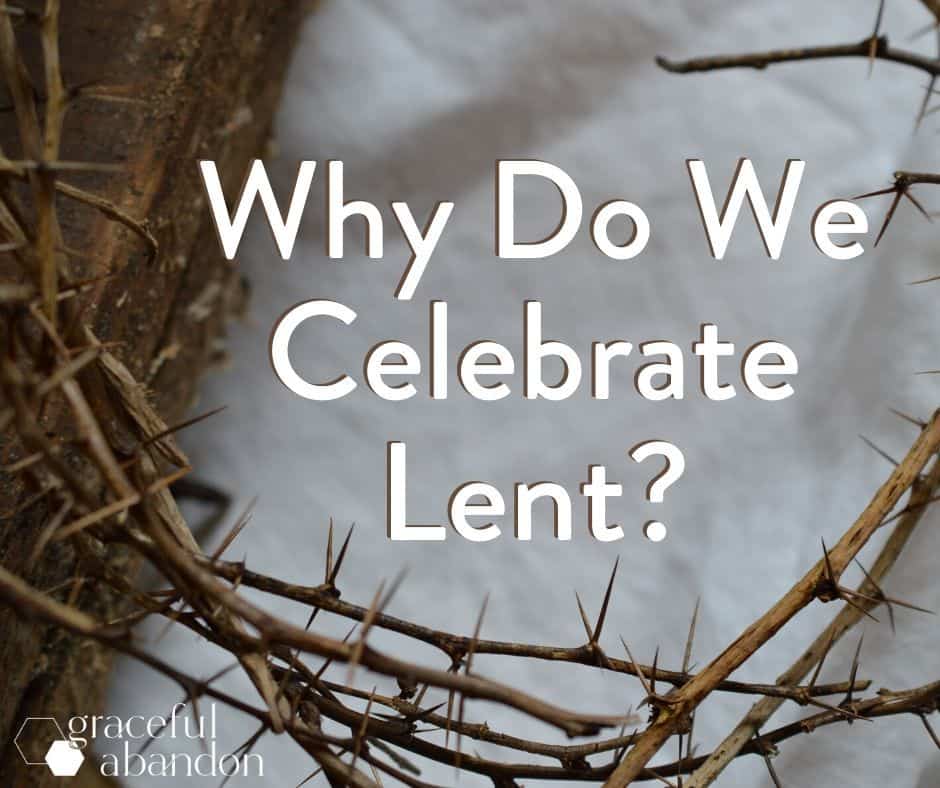
Why Do We Celebrate Lent?
Lent is a choice, not a Biblical mandate. So why do I choose to honor it and invite my children to join me?
Because it re-focuses our heart from the busyness of life onto the cross of Christ, which is essential:
- We must understand the gravity of our sin to appreciate how desperately we need atonement.
- We must understand the futility of our own efforts to atone for our own sins to fully grasp our desperate need for a Savior.
- We must understand our desperation for a Savior to truly embrace with gratitude the work of Jesus on the cross and what it really accomplished.
- We must understand and grieve His death, even through our gratitude, to celebrate fully the resurrection.
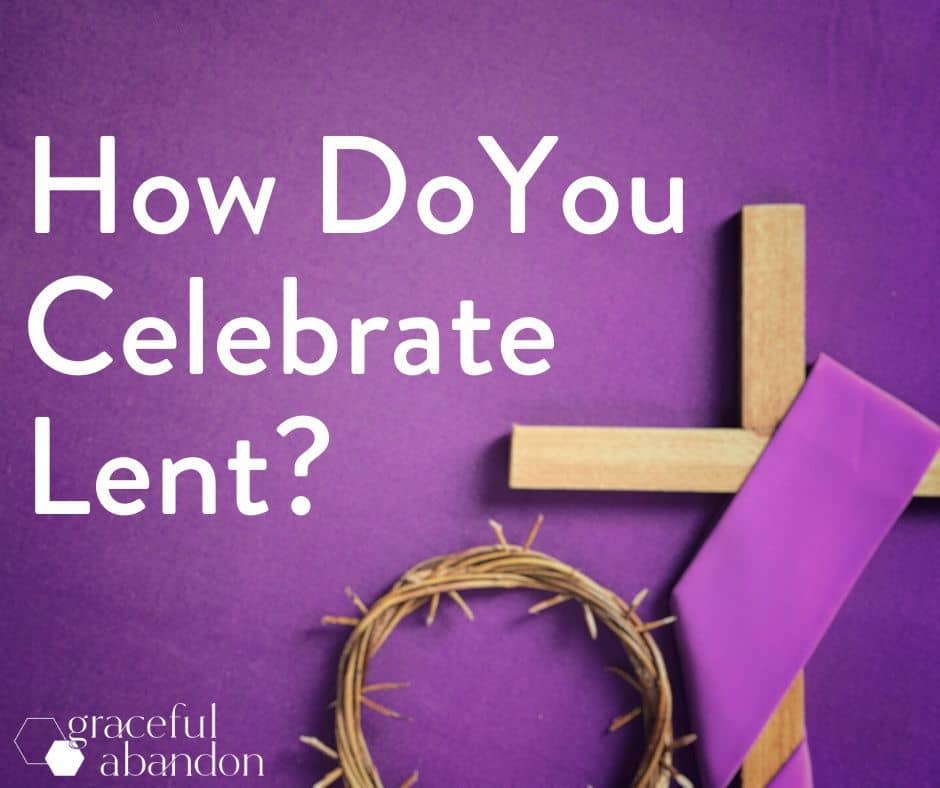
How Do You Celebrate Lent?
Lent is less about how you celebrate and more about how you prepare to celebrate. By that I mean Lent itself isn’t something we celebrate in and of itself; rather, it’s something we observe.
And during this season of Lent we prepare to fully celebrate Easter.
It is traditionally honored by fasting specific foods and usually bad habits, as well. Lent is marked by a season of sacrifice and repentance, not indulgence and celebration.
If you want to know more about fasting before Easter, check out a Christian’s simple guide on what to give up for for Lent.
However, honoring Lent can be somewhat dangerous, as well as beautiful, and because of that it should be approached with intentional focus.
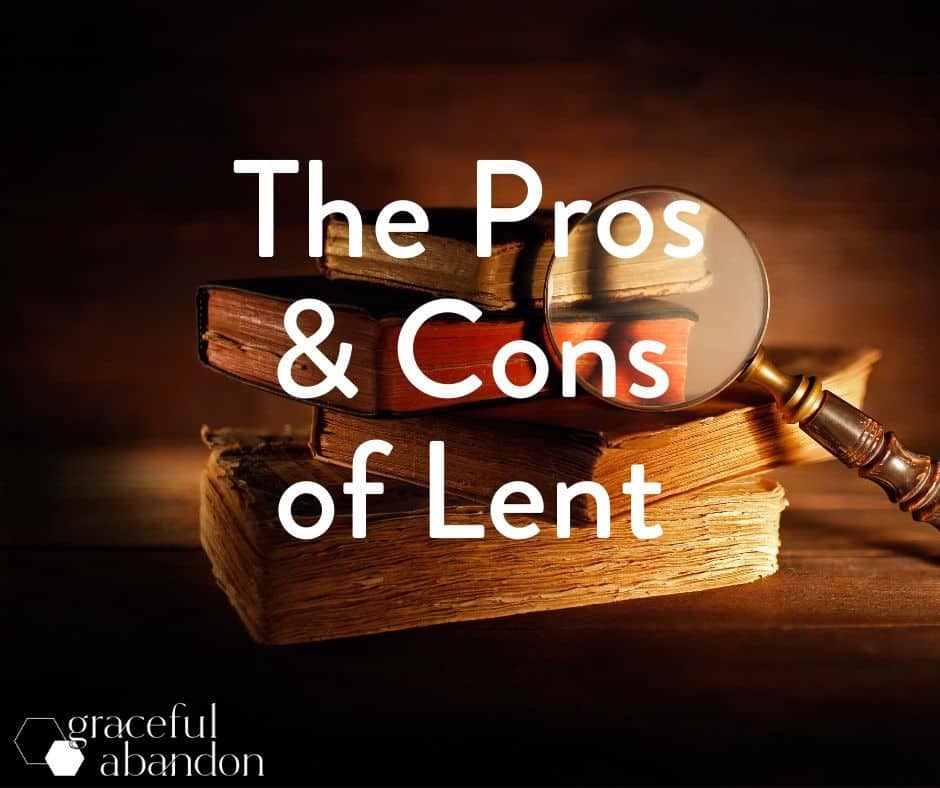
The Pros And Cons Of Lent
The Danger Of Lent
The danger Lent is the same danger of any extra-Biblical activity: it can shift our faith and our focus from the finished work of Christ on the cross to our imperfect efforts of striving.
Lent, as well as other church traditions, can become a carefully masked path back to the Law and away from God’s good and perfect grace if one is not aware of it.
You see, it can by easy for me to become self-righteous about my fasting and denial, beginning to think that these works are right and good.
We have all become like one who is unclean, and all our righteous deeds are like a polluted garment.
Isaiah 64:6a
Our works are never good and never enough. They will always fall short of the mark and we will always need a Savior.
The only vehicle by which we are saved is faith in Christ and His work.
For by grace you have been saved through faith. And this is not your own doing; it is the gift of God, not a result of works, so that no one may boast.
Ephesians 2:8-9
The Beautiful Grace Of The Gospel In Lent
However, if you can avoid falling into a justified-by-the-Law, works-focused mentality, the period of Lent can make the grace of the Gospel that much more tangible in your life.
It can point you towards Him and help you know Him better, as Biblical fasting is intended to do.
Indeed, I count everything as loss because of the surpassing worth of knowing Christ Jesus my Lord. For his sake I have suffered the loss of all things and count them as rubbish, in order that I may gain Christ and be found in him, not having a righteousness of my own that comes from the law, but that which comes through faith in Christ, the righteousness from God that depends on faith— that I may know him and the power of his resurrection, and may share his sufferings, becoming like him in his death…
Philippians 3:8-10 (emphasis mine)
Indeed, knowing Him this way is a tremendously beautiful way to honor God and know Him more.
